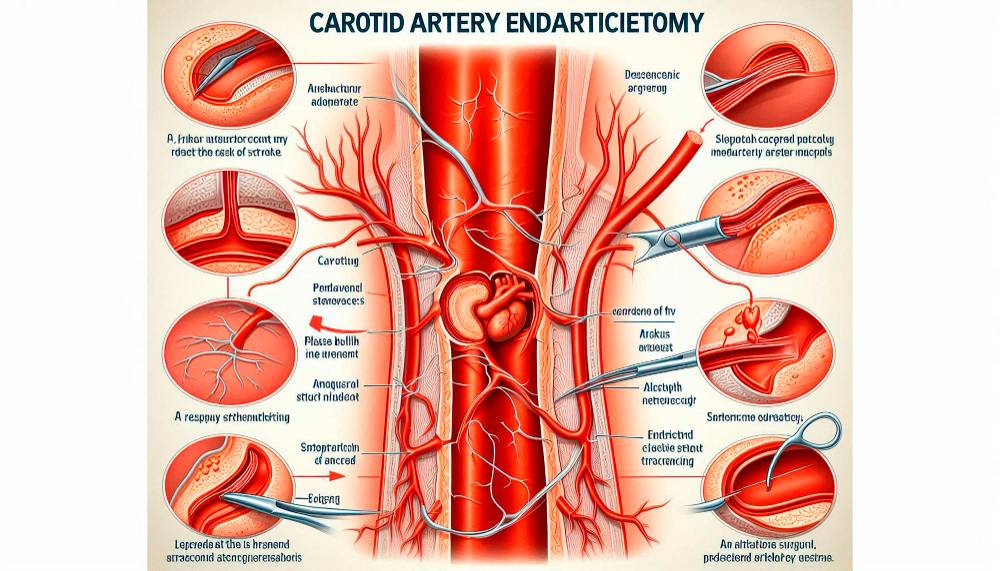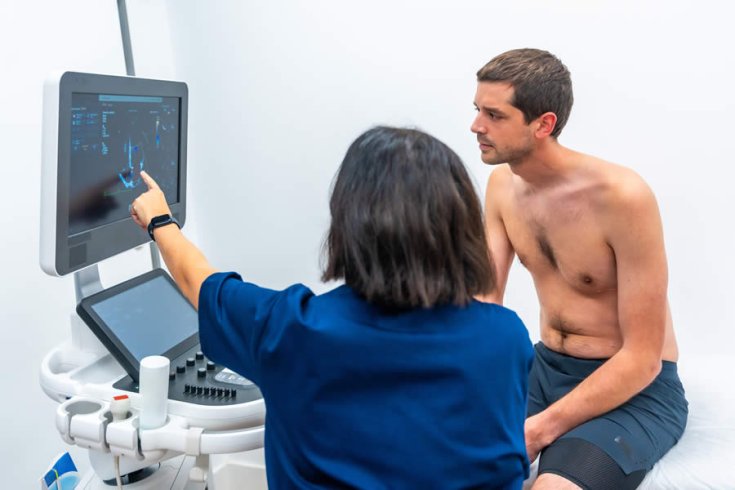At Capitol Cardiology Associates, we empower our patients with the knowledge they need to make informed decisions about their care. Whether you're dealing with mild symptoms of carotid artery disease or facing a more severe diagnosis, our team of experienced cardiologists is here to guide you every step of the way. Read more to learn about the treatment options available for carotid artery disease and what you can expect.
Managing Mild Carotid Artery Blockage
For those diagnosed with mild carotid artery blockage, the approach often centers around lifestyle changes and medications to slow progression. Smoking, diabetes, higher levels of cholesterol, and high blood pressure are all contributors to the buildup of plaque in your arteries. Taking care of these problems through diet, exercise, and medication can reduce the risk of further blockage. Statins are often prescribed to help patients lower cholesterol levels and stabilize plaque. Antiplatelet medications, such as aspirin, can reduce the likelihood of blood clots forming within narrowed arteries. Your heart doctor will work closely with you to develop a treatment plan that fits your specific needs so that every step taken is aimed at preserving your vascular health. Routine monitoring is also essential in managing mild carotid artery disease. Non-invasive tests, like ultrasounds, are used to keep a close eye on the condition of your arteries. This helps track the effectiveness of your treatment plan and ensures that any changes in your condition will be detected early. Staying proactive and adhering to your heart doctor's recommendations can help manage mild carotid artery disease effectively without the need for invasive procedures.
Addressing Severe Carotid Artery Blockage
When carotid artery blockage becomes more severe, with significant narrowing that threatens blood flow to the brain, more aggressive treatment options are necessary. In such cases, your cardiologist in Hyattsville may recommend surgical interventions to restore adequate blood flow and reduce the risk of stroke.
- Carotid endarterectomy: a procedure that involves the removal of the plaque causing the blockage. During the surgery, an incision is made in the neck to access the affected artery, and the plaque is carefully removed. This procedure has been a standard treatment for decades and is highly effective in reducing the risk of stroke in patients with severe blockage.
- Carotid artery stenting: a less invasive option that involves placing a small, mesh-like tube called a stent into the narrowed artery. This helps to keep the artery open and allows for better flow of blood to the brain. Stenting is typically recommended for patients who may be at higher risk for complications from traditional surgery, such as those with other serious medical conditions.
Minimally Invasive Alternatives
New advancements in medical technology have introduced minimally invasive alternatives that may be suitable for certain patients. One such alternative is transcarotid artery revascularization, a technique that combines the benefits of surgery and stenting. TCAR is designed to minimize the risk of stroke during the procedure by temporarily reversing blood flow in the carotid artery and preventing any loose plaque from traveling to the brain. TCAR involves a smaller incision and typically results in a quicker recovery time compared to traditional surgery. It is particularly beneficial for patients who are considered high-risk for open surgery due to their age or other health concerns. While still relatively new, TCAR is gaining popularity as an effective option for treating severe carotid artery disease with fewer complications. As with any treatment, your heart doctor will assess your suitability for TCAR, considering factors like the specific location and severity of your blockage, as well as your overall health. Another emerging technique is balloon angioplasty, which is sometimes used in conjunction with stenting. In this procedure, a small balloon will be inserted into the artery and then inflated to widen the narrowed area before placing a stent. While not suitable for every patient, balloon angioplasty offers another minimally invasive option for those with specific types of carotid artery disease.
Ongoing Care and Monitoring
Whether your carotid artery disease is managed through lifestyle changes, medication, surgery, or a minimally invasive procedure, ongoing care and monitoring remain critical components of your treatment plan. Regular follow-ups with your cardiologist ensure that any changes in your condition are detected early. Post-treatment, your heart doctor will likely recommend continued lifestyle modifications that can help decrease the risk of a recurrence. This includes maintaining a heart-healthy diet, staying physically active, and avoiding smoking. Medications may also continue to be a part of your long-term care plan, particularly antiplatelet drugs and statins, which help prevent future blockages. Regular imaging tests, such as ultrasound or magnetic resonance angiography, are typically used to monitor the status of your carotid arteries post-treatment. These tests help ensure that your arteries remain open and free of significant plaque buildup, which reduces the risk of stroke. Keeping up with your follow-up appointments and adhering to your treatment plan can help you effectively manage carotid artery disease and maintain your quality of life.
Do You Need Professional Care?
At Capitol Cardiology Associates, we are committed to providing personalized, comprehensive care for patients with carotid artery disease. Our experienced cardiologists will work with you to determine the best treatment approach, whether that involves lifestyle changes, medication, or advanced surgical techniques. If you're experiencing symptoms or have been diagnosed with carotid artery disease, don't wait to seek expert care. Contact us today to schedule a consultation.






